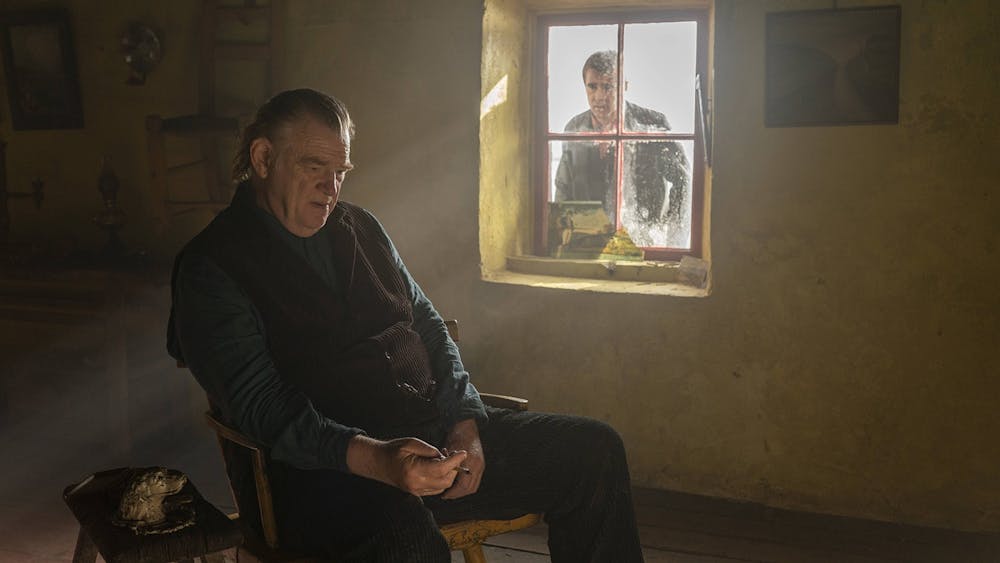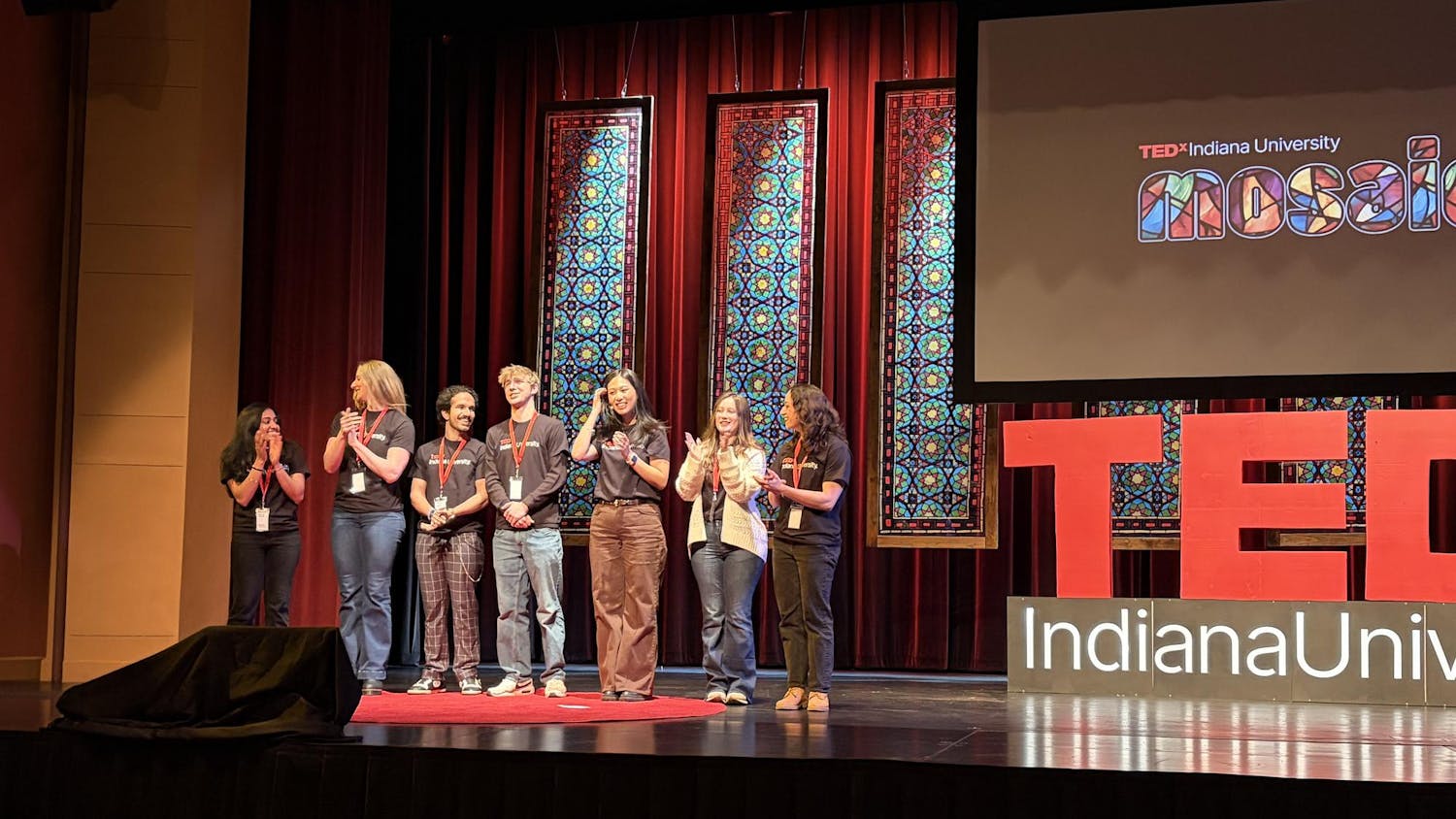SPOILER ALERT: This column contains potential spoilers about “The Banshees of Inisherin.”
British-Irish film director Martin McDonagh seamlessly blends the elements of comedy and tragedy together in his latest film, “The Banshees of Inisherin.” With a flair for absurdist comedy, McDonagh paints a harrowing portrait of two lifelong friends who find themselves in an irrevocable disagreement.
Set in 1923 on the fictional Irish isle of Inisherin, fiddler Colm, played by Brendan Gleeson, begins ignoring his longtime friend and lowly cow herder Pádraic, played by Colin Farrell, without warning or reason.
Although the idyllic island off the coast of Ireland is not real, its authenticity is palpable. Picturesque greenery collides with rustic rocks, stone cottages and roaming sheep, while day drinking at the local pub is as habitual as brushing one’s teeth. Gunshots can be heard across the water, though, as the Irish Civil War persists on the mainland.
Related: [COLUMN: 6 songs to capture the dreary essence of winter]
As the civil war drags on, tensions rise between Colm and Pádraic. Over the course of several discussions, we learn that Colm has come to find Pádraic — a man who can chat for hours about his beloved donkey — dull. In an absurdly forward admission, Colm tells Pádraic, “I just don’t like you no more.”
A deeply wounded Pádraic continues to call upon Colm and approach him at the local pub where they used to drink together. After several attempts to rid himself of Pádraic, Colm relents and reveals his true motivations for initiating the pair’s impasse. Colm reveals he’s fallen into a deep depression, caused by a sense of time slipping away. Determined to do something creative with his life and leave behind something to be remembered by, he dedicates himself to his music and rids himself of Pádraic — a “limited man.”
Related: [IU Auditorium to welcome John Mellencamp, ‘Annie’ and more this semester]
Even after this revelation, Pádraic continues to seek out Colm. Fed up with Pádraic’s incredulity and persistence, Colm vows he will cut off one of his own fingers next time Pádraic tries to talk to him. It’s important to remember Colm is a fiddle player, whose vow to cut off his own finger works only to spite Pádraic. This irrational threat adds exciting momentum to the story, which seems to move slowly in the first act.
As the film progresses, love turns to vengeance as Colm’s rude, yet sincere remarks eat away at Pádraic’s innate goodness. While this conflict wholeheartedly mirrors the Irish Civil War, the metaphor is perhaps most relevant at this point in the film: irrevocable differences persist and almost all hope is lost to rekindle what was once a working relationship.
Actors Farrell and Gleeson deliver a tour de force performance, with vulgar brashness and acerbic wit seeped in melancholy. Although deeply macabre, “The Banshees of Inisherin” encourages audiences to empathize with both sides of civil war through a fable-like tale of lifelong friends who’ve ended their relationship.




